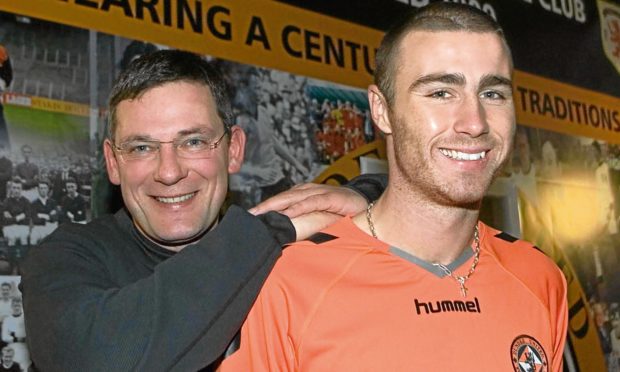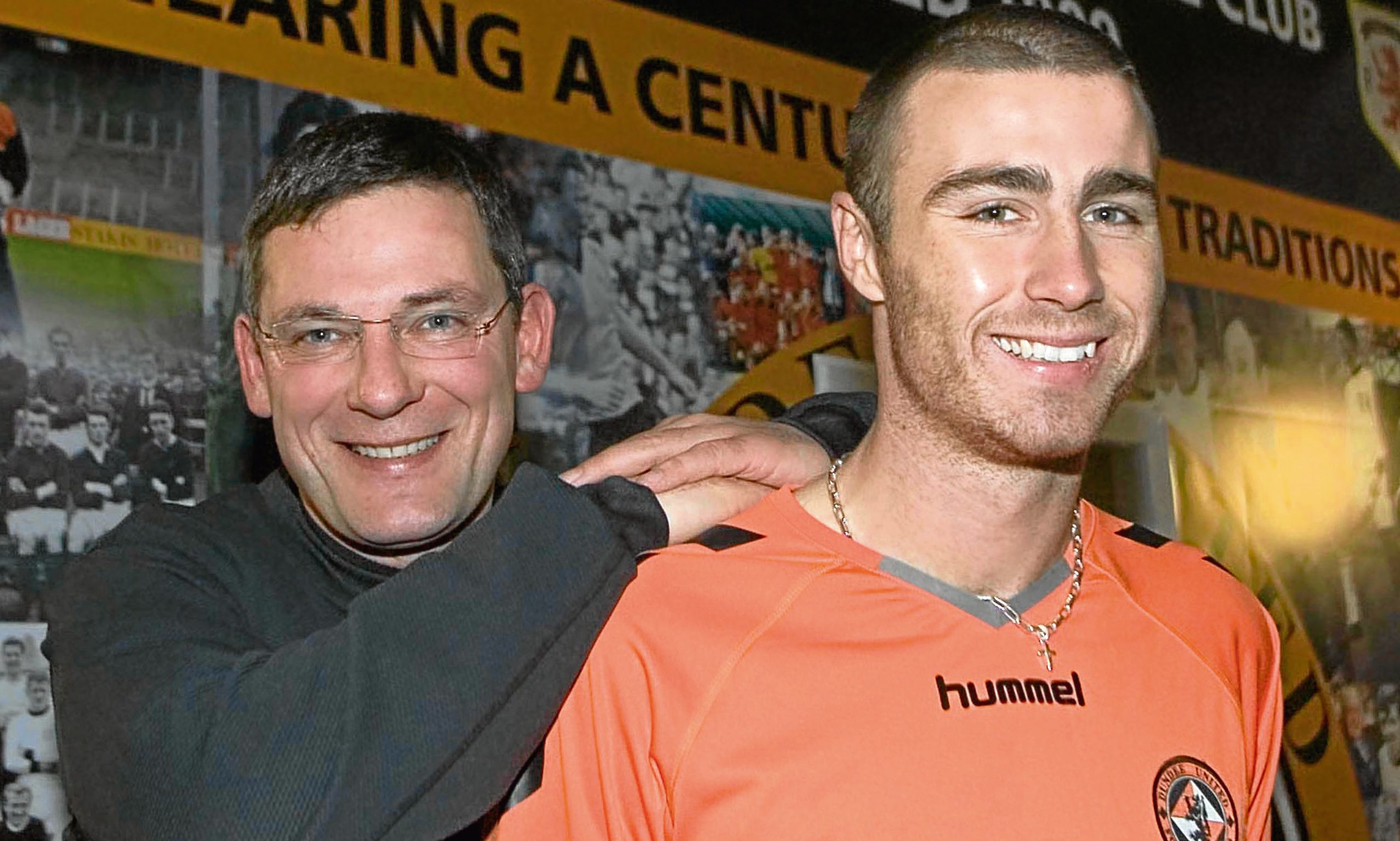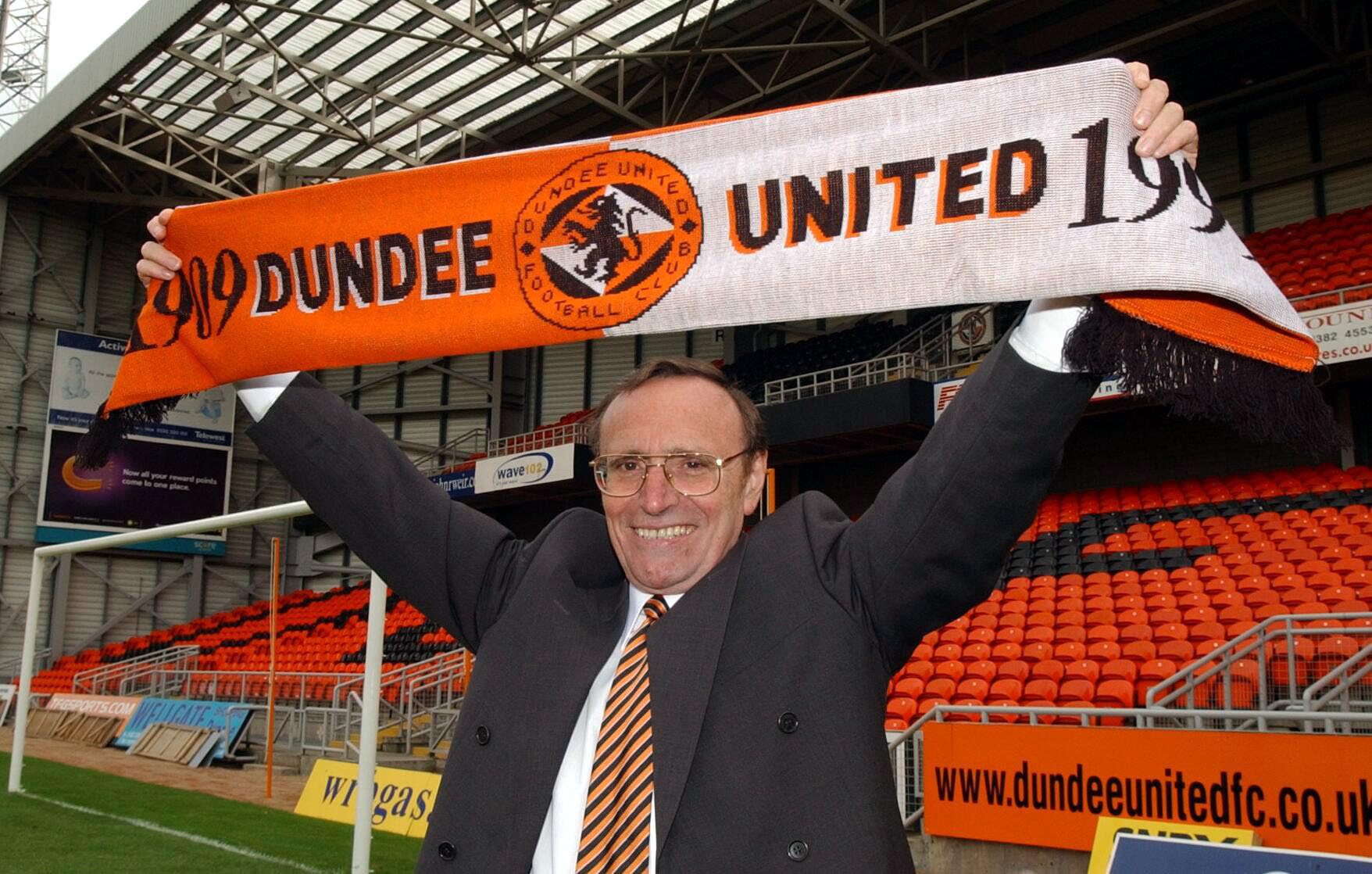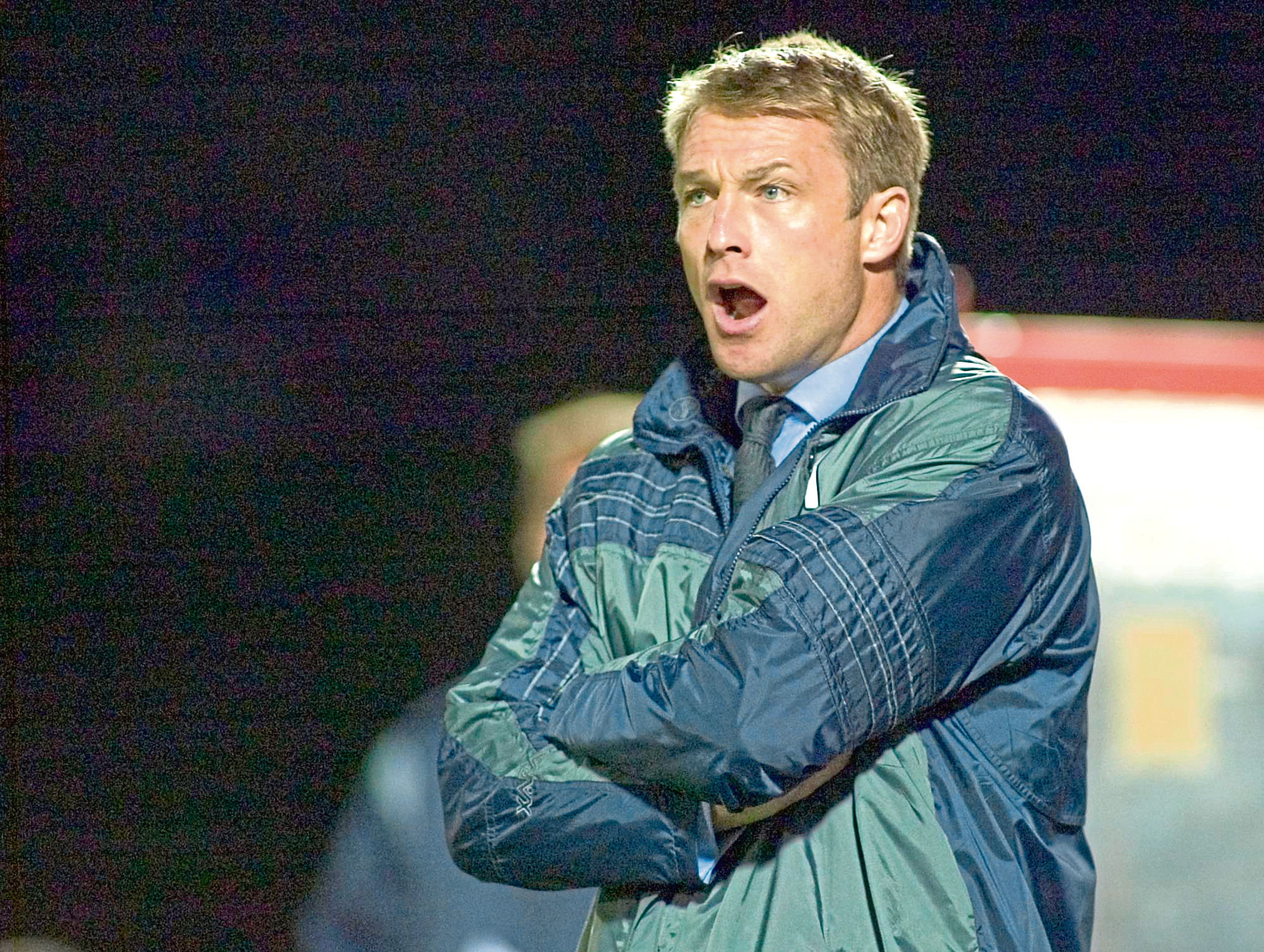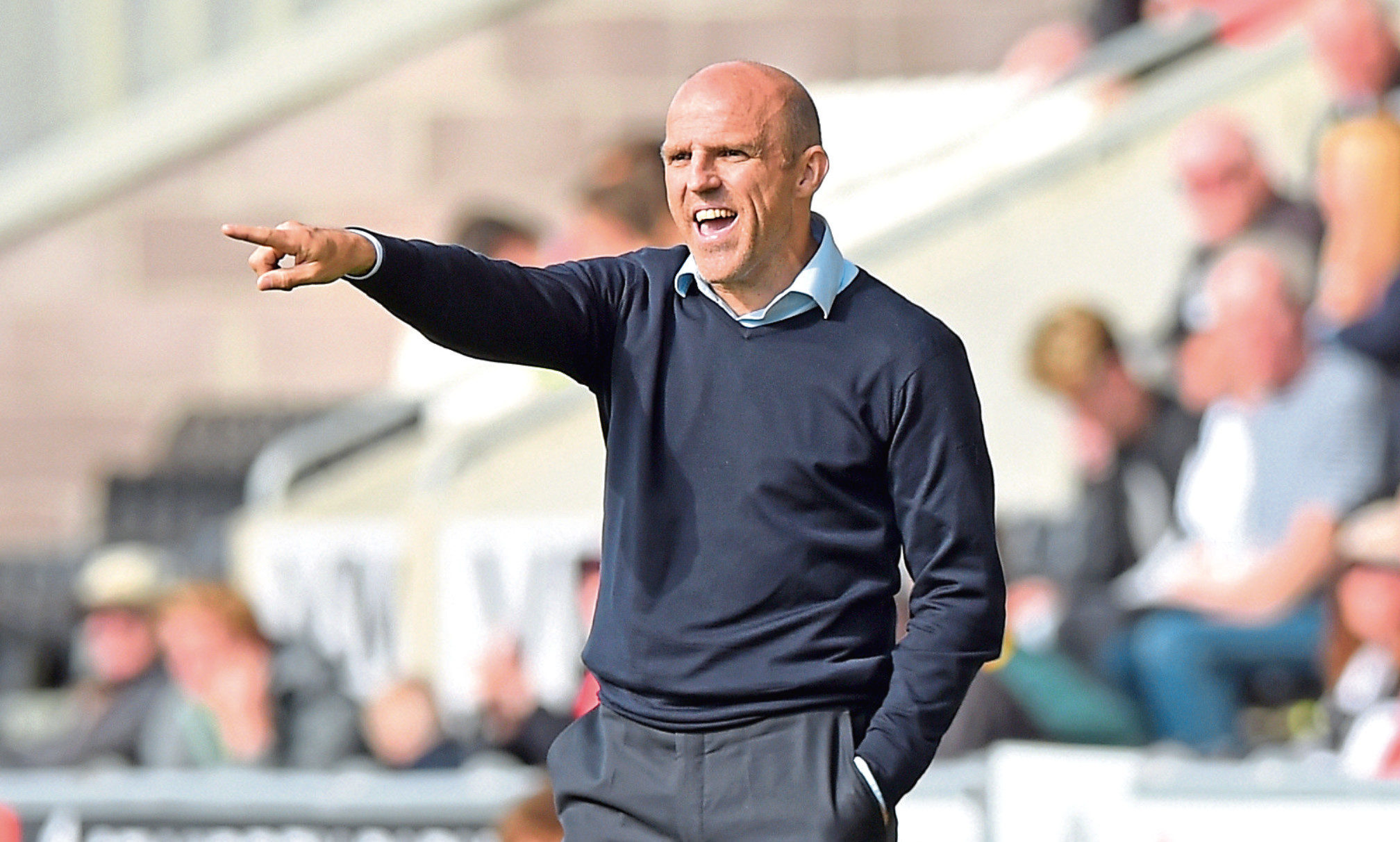By the time it had become clear things were not working out for Craig Brewster at Dundee United, it was just as apparent this time owner Eddie Thompson had to get it right when choosing a manager.
In just four years in charge he’d had four of them and appointed Paul Hegarty, Ian McCall and Brewster without achieving anything like the hoped for success.
With that in mind, he went for experience in the shape of ex-Hearts boss Craig Levein.
In doing so, he pulled a rabbit out of the hat that would lead to one of the best periods in the Tangerines’ history.
After success at Tynecastle, troubled times in charge at Leicester City meant Levein was a man with a point to prove.
Bringing trusted assistant Peter Houston with him, he wasted no time in doing exactly that.
United were stuck at the bottom of the Premier League and without a win in eight games when he arrived, so a first game against Rangers looked a daunting prospect.
The man fans would come to call “Sir Craig” worked his magic straight away as his new charges pulled off a shock 2-1 win.
And, for the next three years, the only way was up as Levein quickly transformed his team into permanent top-six fixtures and also serious contenders in the cup.
Sadly, though, that rise in the team’s fortunes coincided with a rapid decline in the health of Thompson, who was fighting, but losing, a brave battle with cancer.
Thompson would pass away in October 2008 and, just a few months earlier, Levein came agonisingly close to giving him the silverware he so coveted.
In what’s become known as the Eddie Thompson final, United and Rangers were locked together after 120 minutes of a classic Hampden League Cup showdown the Tangerines had the better of.
Sadly, the lottery of penalties saw them miss out on the trophy but Levein’s success in the league continued to the extent it was no surprised when Scotland came calling at the end of 2009 and the job was handed to assistant Houston.
That would lead to the greatest moment in the Thompson family’s time in control – son Stephen was now chairman – as Houstie led United to a memorable Scottish Cup Final triumph over Ross County in May 2010.
For three more years he would continue to maintain high league finishes but an increasingly strained relationship with his chairman saw Houston depart early in 2013.
If the arrival of Levein heralded a golden era for United, at Dundee the troubles continued.
Administration had taken a massive toll and, even by the time Alan Kernaghan succeeded Jim Duffy in September 2005, life at Dens Park was a weekly struggle to survive.
The former Irish international was able to lead the team to the Scottish Cup semis but they were well beaten by Gretna, another club that would quickly pay the price of extravagant spending.
Stuck in the second tier, his limited budget meant despite fan and board expectation, promotion was never an option.
Even so, finishing seventh, some 33 points off the top-of-the-table pace, meant the likeable Kernaghan had to go.
With a recently-appointed chief executive in place in the shape of Dave MacKinnon, the Dark Blues took the bold step of appointing Alex Rae as their new player-manager.
Assisted by close friend Davie Farrell, the former Rangers man set about making his team serious promotion contenders once again and, in his first season, did a more than creditable job in securing a third-place finish in the second tier.
He went one better the following year and, given the money available to him, was doing an excellent job.
Again, though, board and fan expectations that were less than realistic, meant a poor start to his third season would cost him his job in 2008.
To this day, and even for a club that’s disposed of many managers quickly, that seemed the harshest of decisions.
In the next part of Millennium Managers – Dundee fall into the administration mire again despite Melville money, while Jackie McNamara oversees a young and talented United group.
